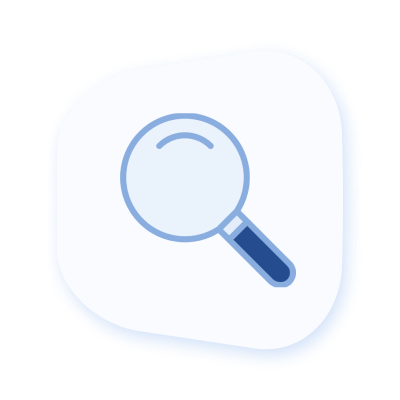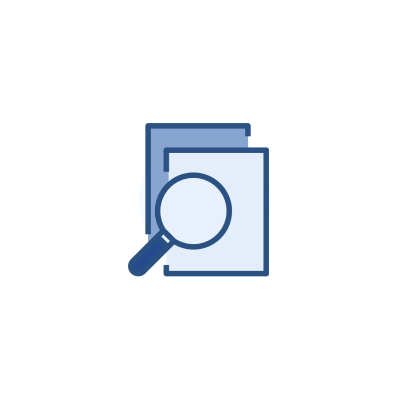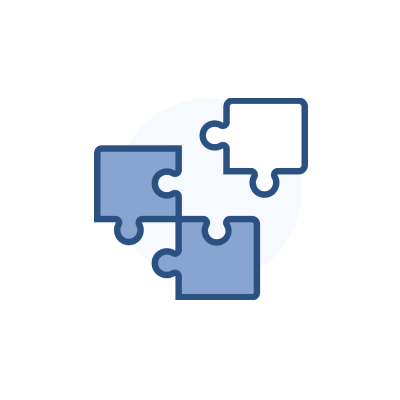Free Plagiarism Checker: Your Best Defense Against Plagiarism
Our online plagiarism checker scans over a billion texts online and in journals worldwide to identify potential plagiarism and similar content in your document. Ensure your work is original and free of copied content with just one click.
What is an AI plagiarism checker?
AI plagiarism detectors use sophisticated database technology to search for similarities and duplicate content between your document and pre-existing texts. Universities often utilize these tools to evaluate student papers. Commercial versions of plagiarism checkers are now available for individuals to verify the originality of their work before submission.
Our AI Plagiarism Checker's detection model can check for plagiarism by systematically exploring and cataloging online content and comparing your document against a database of internet-based materials for any similarities. They identify matching text through keyword analysis. Some plagiarism detectors are capable of recognizing instances of heavy paraphrasing, where the match is closely related.
Why choose our plagiarism checker?

Comprehensive plagiarism checker software for any document
Our plagiarism detection and similarity check can:
- Detect plagiarism in published works in over 100 languages
- Inspect for multiple forms of paraphrasing
- Detect source code plagiarism
- Identify most AI-generated content

Unrivaled depth of search results
Our AI plagiarism detector identifies content duplication and paraphrasing within trillions of pages of original content, including:
- Open-access journals
- Internal database documents
- Websites
- Code data repositories
How does our plagiarism checker work?
Enter your text or upload your document
Simply copy and paste all your content from your document into the plagiarism detection solution text field or upload your entire document and click “Plagiarism Check” to get started.


Check for plagiarism at the click of a button
Once the plagiarism check has begun, simply wait for the tool to cross-check references across the internet for exact or similar matches to the text you entered.
Get a similarity check with instant results
In just a matter of minutes, our plagiarism detection software scans and searches through millions of databases and sites online and gives you detailed results. Sources are provided for plagiarized text so you can see what has been included in your text and what needs to be changed.

Who can use the Wordvice AI Plagiarism Checker?
Our AI plagiarism checker app can be used by anyone who needs to ensure their writing is original and contains no plagiarized text or copyright issues.

Students
Students can perform a quick plagiarism check for their papers or homework before submission to avoid making a teacher or professor question their academic integrity. Wordvice AI’s plagiarism-checking software makes it easier for students to prepare any written work and takes away some of the pressure of turning in important writing assignments.

Teachers & professors
Whether in middle school, college, or university, teachers and professors are tasked with ensuring that their students are writing work that is original and authentically researched. With the advent of AI writing tools, it has become ever easier for students to plagiarize or even compose writing that is not their own. Our plagiarism checker takes some of the burden off of teachers so they can focus on teaching the material.

Researchers & content writers
Every academic researcher knows just how crucial it is to write research papers that capture the important elements of their study. Unfortunately, many researchers and content writers end up plagiarizing other studies and source material by accident. Using an AI website to check for plagiarism before submitting your work to journals is always a good idea, as it shows journal publishers that you are an ethical researcher, instilling trust in your study approach and results.
Types of Plagiarism Detected by Our AI Plagiarism Checker
Plagiarism is the act of copying work from another source and passing it off as the author’s own in their work. There are a few different types of plagiarism you should be aware of. All of the following types are identified by our plagiarism tool.

Mosaic plagiarism
Mosaic plagiarism occurs when an author applies phrases from a source without using quotation marks. It can also involve using synonyms for the original work’s language while maintaining the same overall structure and meaning. This is perhaps the most common form of plagiarism and is one reason why plagiarism checks will often show that parts of sentences have been copied, rather than entire sentences or paragraphs. Often, a query on search engines will yield results for this type of plagiarism.

Accidental plagiarism
Although any kind of plagiarism could be done by accident, plagiarism can often occur when a writer simply forgets to paraphrase, rewrite, or cite the source in their final draft before submitting it. Cases of accidental plagiarism are common, especially in graduate studies, academic research, and even news articles. Use our plagiarism detection service to ensure there are no accidentally plagiarized phrases remaining in your text.

Self-plagiarism
Self-plagiarism means reusing one’s own previously published work. This could include data, parts of a paper, or graphs from an old paper. Many researchers assume that, if the work is their own, they can include it in current papers without citing it. However, if you are leading the reader to believe that your work is original when it is not, then you are plagiarizing. Be sure to check for self-plagiarism in your manuscripts before submitting them to journals.